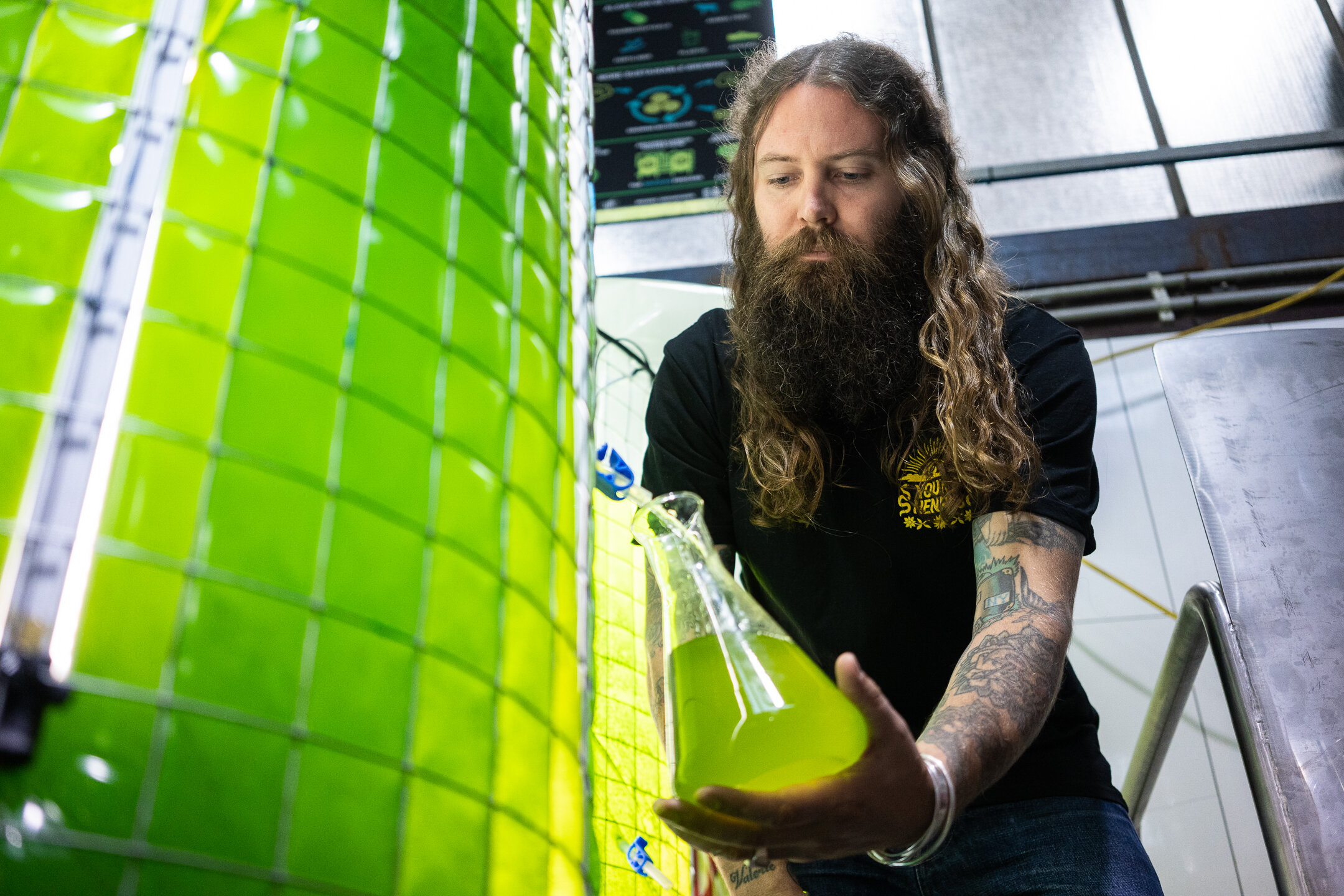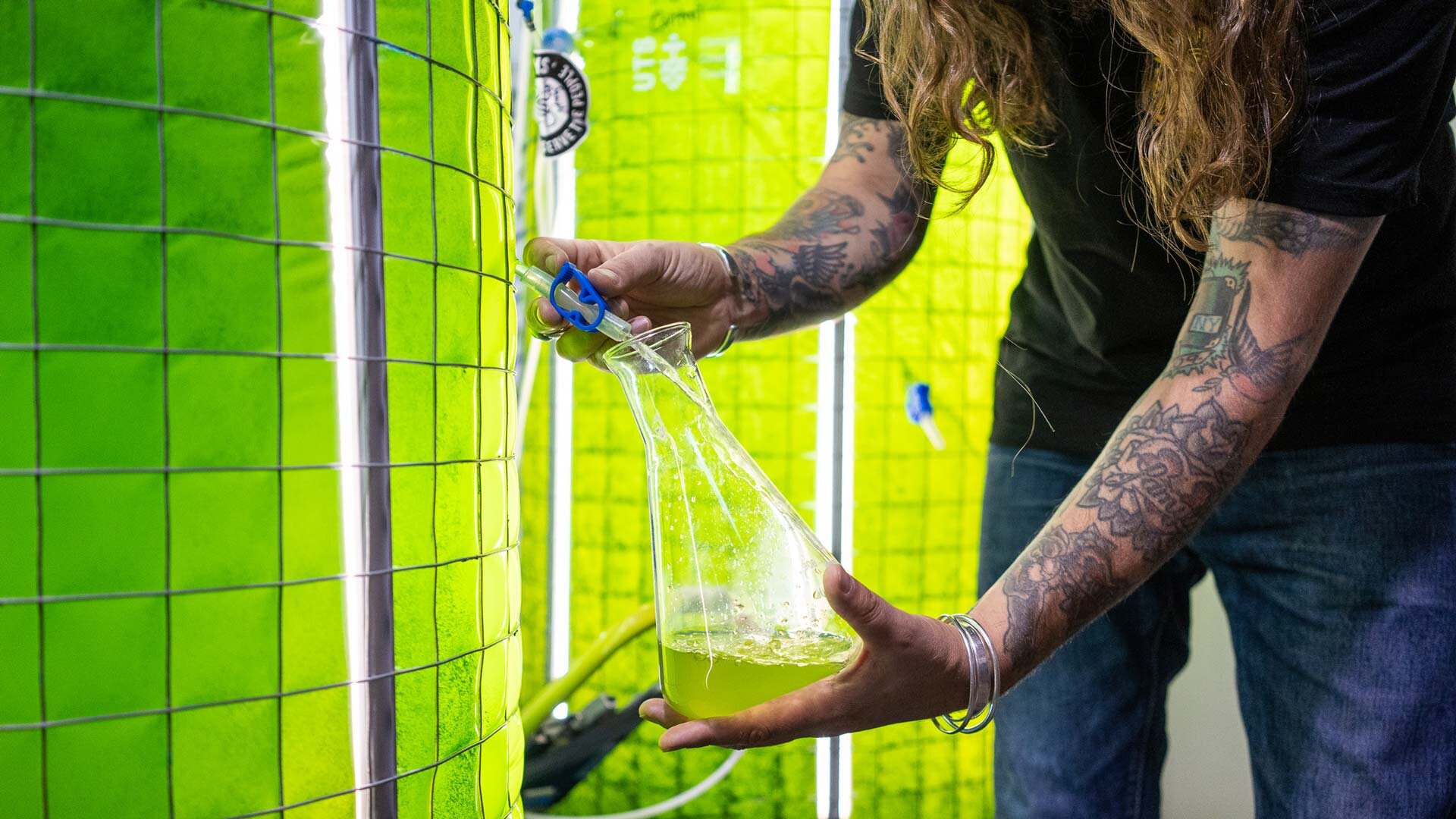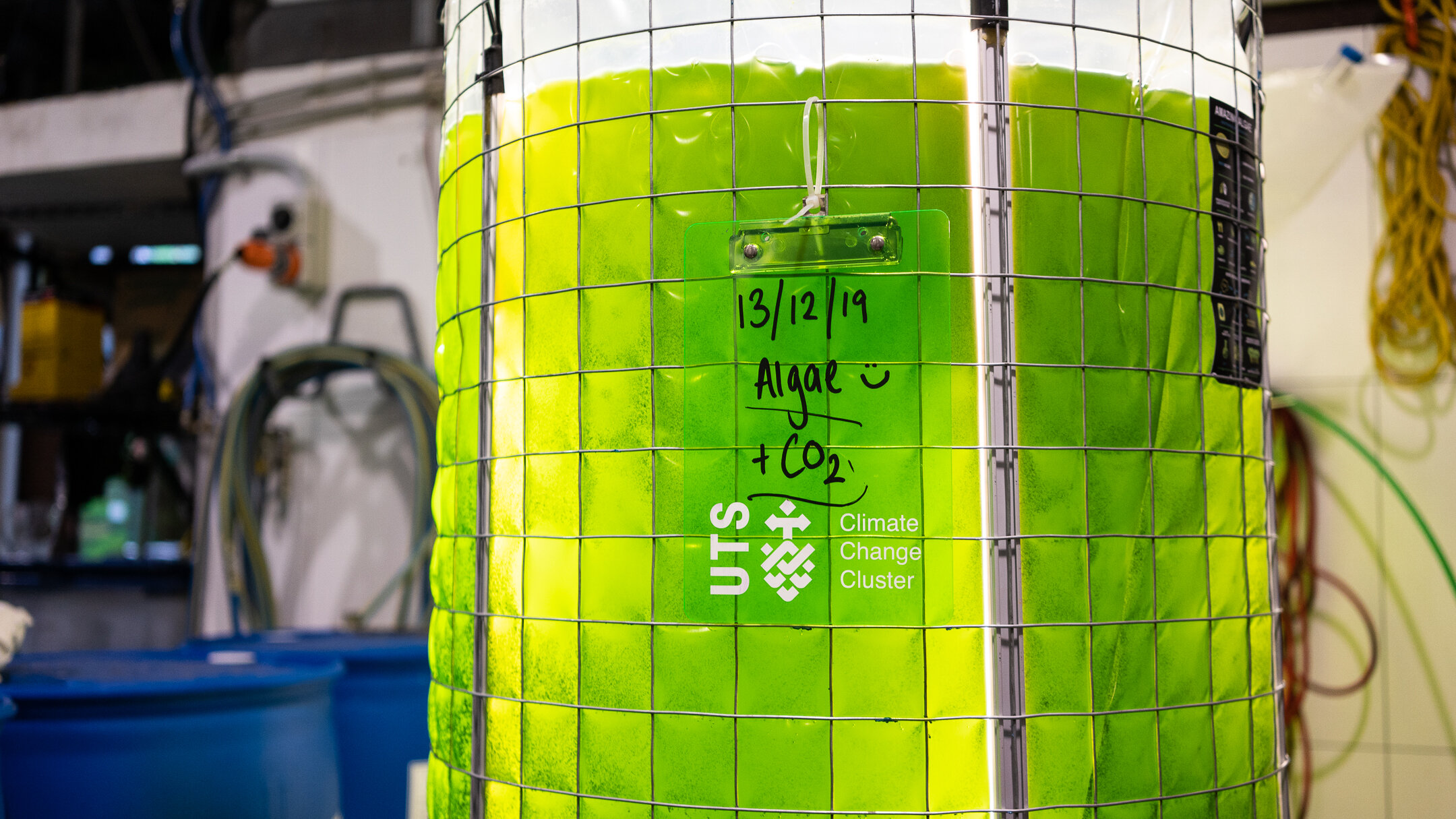Future Brewers
Gadigal Land | Words by Georgina Safe | Photos by Joel McDonald
Inside Young Henry’s brewery in Newtown there’s a fluorescent green glow pulsing from the bubbling bioreactors. It sounds like a scene from a science fiction film, but it’s actually an innovative commitment to the future of fighting climate.
The Sydney brewer has partnered with scientists at the University of Technology Sydney Climate Change Cluster (C3) in a world-leading project to install bioreactors teeming with microscopic algae to make brewing a more carbon neutral process.
“Together we’ve developed a method of using CO2, which is a by-product of the brewing process, to feed the algae housed in the bioreactors on our brew floor,” says Young Henry’s co-founder Oscar McMahon. “When the algae consumes the CO2 it releases oxygen, which reduces our emissions as a business and helps combat climate change.”
“The CO2 from fermenting beer is usually released into the atmosphere and can destroy it, with the fermentation of just one six pack of beer typically taking a tree to full days to absorb. But thanks to the partnership with C3, Young Henry’s estimates its algae now releases as much oxygen as two hectares of bushland.”
The CO2 from fermenting beer is usually released into the atmosphere and can destroy it, with the fermentation of just one six pack of beer typically taking a tree to full days to absorb. But thanks to the partnership with C3, Young Henry’s estimates its algae now releases as much oxygen as two hectares of bushland.
“As a business we believe that the private and public sector can lead the way in enacting change within society to reverse our impact on climate change.”
The partnership with C3 came about after Young Henrys heard about the work the group was doing and wanted to get involved.
“Some of the skills we have as brewers managing yeast have an analogue in growing algae - it’s almost like they have an inverse relationship,” says McMahon. “We thought it would be worth exploring how microalgae could work in a brewing operation to lower our carbon footprint and produce real world solutions.”
Algae is naturally occurring in the environment and forms a key part of all aquatic food webs and ecosystems. There are two main types; macroalgae, which consists of kelps and seaweeds, and microalgae, which are tiny, microscopic plants that can grow both in fresh and saltwater.
Research into algae reveals its photosynthesis effectiveness is so strong that it produces more than 50% of the world’s oxygen. In addition, the algae that is grown from sucking up all that CO2 can go on to have another life, and be used in a bunch of products like food or even bio-plastics.
In the Young Henry’s glowing bioreactors, housed amongst the brewery equipment, each millilitre contains about five million microalgae cells, or individual organisms, working overtime to produce clean air for a better future.
“Every step in our brewing process is operated by the most sustainable means possible and this new algae initiative is a prime example,” says McMahon.
He has been overwhelmed by interest in the initiative from other brewers and businesses since the program began, and says it can have a profound positive impact on the wider industry.
“We’ve had everyone from huge English and German breweries to small start-up wine makers contact us, so what’s exciting is the potential for wider applications”
He has also seen a huge upswell of consumer interest in the algae bioreactors, as part of growing global shift to customers wanting to support sustainable businesses committed to fighting climate change.
“If you look at shopping patterns around the world people are making the shift towards buying ethical and sustainable products and using their money to support companies that give back,” he says.
“Environmentalism is going to become a super power for companies in their ability to sell to people, and if you’re not working on a sustainability program right now, you will be left behind.”















